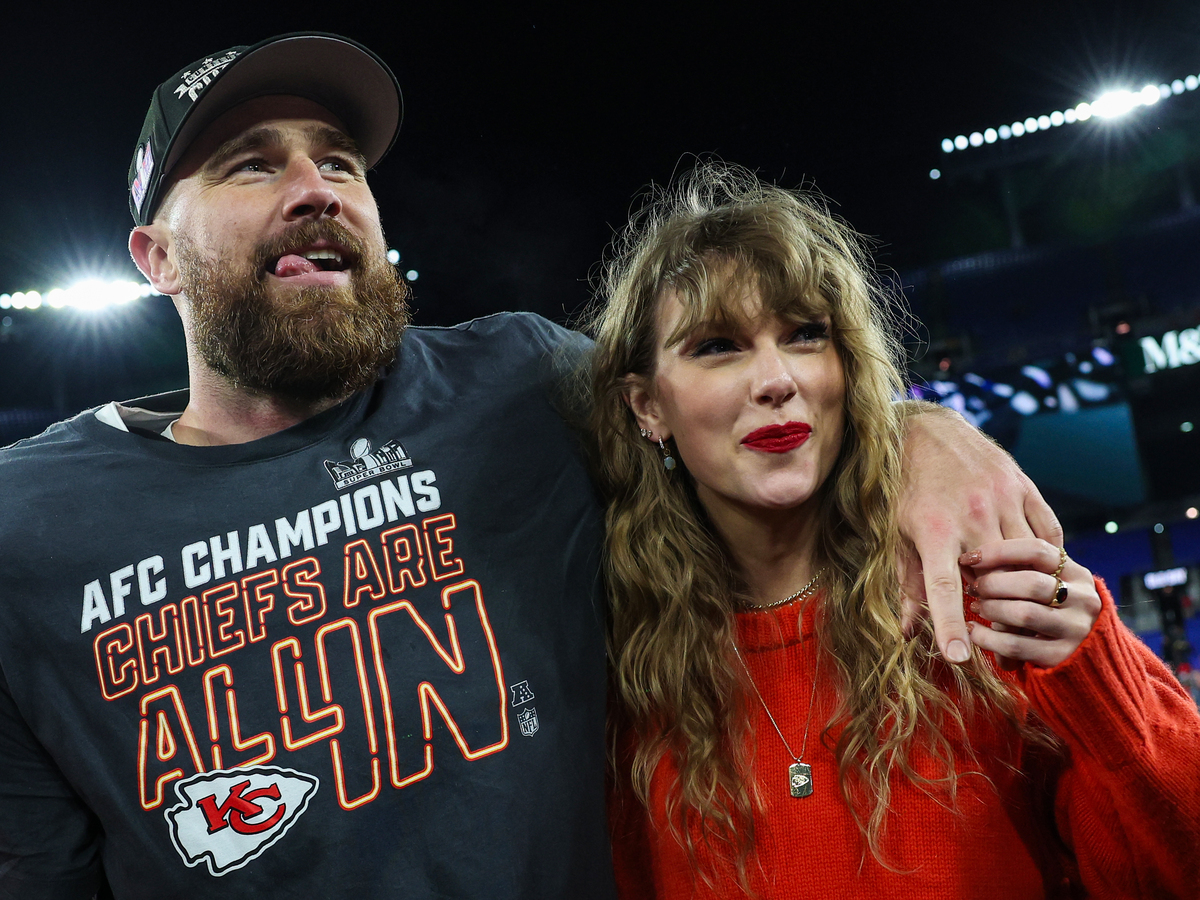[ad_1]

Taylor Swift, who has been celebrated for her ability to channel the emotions and perspectives of adolescent girls.
Photos: Suzanne Cordeiro/AFP, Shirlaine Forrest/Getty Images for TAS /Design: Jackie Lay/NPR
hide caption
toggle caption
Photos: Suzanne Cordeiro/AFP, Shirlaine Forrest/Getty Images for TAS /Design: Jackie Lay/NPR

Taylor Swift, who has been celebrated for her ability to channel the emotions and perspectives of adolescent girls.
Photos: Suzanne Cordeiro/AFP, Shirlaine Forrest/Getty Images for TAS /Design: Jackie Lay/NPR
This article first appeared in Code Switch’s “Up All Night” newsletter, about the race-related thoughts, ideas, and news items that our team is losing sleep over. For first access every Friday, sign up here.
A few months ago, I traveled to Bloomington, Indiana to attend an academic conference dedicated to analyzing an American giant. A lawyer dissected this person’s influence on American copyright law. A sociologist talked about queer temporality in this artist’s work. One scholar echoed the idea that this person is “the Shakespeare of our time.”
We were talking, of course, about Taylor Swift.
It’s funny to say that Swift is having a moment – she’s been famous for so long it’s almost hard to remember a time before she started having moments. Even so, the past year has felt monumental. At this weekend’s Grammys, she’s in the running to set a record for most Album of the Year awards, which, at this point feels almost like small potatoes. After all, already, Swift’s Eras tour has earned more than a billion dollars – the first concert tour ever to do so. The movie-version of her concert broke box office records, grossing $92.8 million on opening weekend. She was named Time Magazine’s Person of the Year (for the second time, sort of.) And now, President Biden is rumored to be seeking her endorsement, bringing fear to the hearts of the Republican establishment. What is a Grammy to a kingmaker?
But as Swift’s fame and power grows, her persona has proved, at times, polarizing. There are people who love her and people who don’t. People who follow her every move, and people who don’t understand why her name is suddenly popping up everywhere. And then there are people who trust her, and people who don’t.
That last division, I think, has a whole lot to do with how different communities are conditioned to perceive people of Swift’s demographics — that is to say, thin, young, blonde, pretty, white women.
For many, those characteristics help create a persona that they’re inclined to take at her word: the girl-next-door, the naïf, the angelic songstress who speaks directly from the heart. And Swift has long been lauded for her incredible ability to spin a yarn. In fact, several high-profile institutions have suggested that she’s the best person to tell her own story. But quieter, sometimes, are the voices questioning whether the stories she tells are real, or complete — and what the consequences are if they’re not. There’s a moment in the article that accompanied Time’s “Person of the Year” announcement where the writer decides not to question Swift about a certain narrative she’s presented; her feelings, the writer says, are a valid last word.
But Swift is a billionaire businesswoman with a multimedia company to run. Taking her word about something in her life is like taking Ronald McDonald’s word about McNuggets. Both are characters, trying to sell a product. Only with Swift, the product is herself. Her emotional health, her cats, her love life, her friendships, her cardigans — all are parts of a persona meticulously curated to uphold the narrative that is Taylor Swift.
That’s not always a bad thing. Swift affirms the emotional lives of many of her fans, which is wonderful. Convincing a boatload of people to vote is great, too. The danger, I think, comes when we conflate the person for the persona; the mascot for the business.

Travis Kelce and Taylor Swift celebrate after the Kansas City Chiefs defeated the Baltimore Ravens in the AFC Championship Game at M&T Bank Stadium in Maryland on Sunday.
Patrick Smith/Getty Images
hide caption
toggle caption
Patrick Smith/Getty Images

Travis Kelce and Taylor Swift celebrate after the Kansas City Chiefs defeated the Baltimore Ravens in the AFC Championship Game at M&T Bank Stadium in Maryland on Sunday.
Patrick Smith/Getty Images
Take the example of Swift’s much-publicized relationship with Travis Kelce. On a human level, who Swift hangs out with or dates or pretends to date is profoundly unimportant. But who she’s seen dating, and where, is another story — a business story. Swift has the ability to affect the economy of entire towns when she visits them; when she decides to publicly support the NFL (an institution that has faced, um, critique) she is making a choice. Now, hordes of young Swifties who otherwise may have cringed at the league’s penchant for, you know, brutalizing people’s bodies beyond repair, are giving football a second look.
There are of course many other things that Swift has done — most of which the world will never know about. But as she continues to be rightly acknowledged as one the most influential figures of our “era,” it’s worth considering what it means that someone with her position and power is still so often discussed as authentic, relatable, and ever associated with adolescence.
So: On this week’s episode of the podcast, we’re digging into some of those complex questions about what Swift’s persona means, how it gets wielded, who it benefits, and who it may leave behind. And we’re heading back to that conference in Bloomington, Indiana to do it.
In the episode you’ll hear from Addie Mahmassani, a cultural historian who studies women in popular music. Mahmassani was a speaker at the conference; you can watch her full remarks, about how Swift fits into the canon of women in folk music, right here.
[ad_2]


